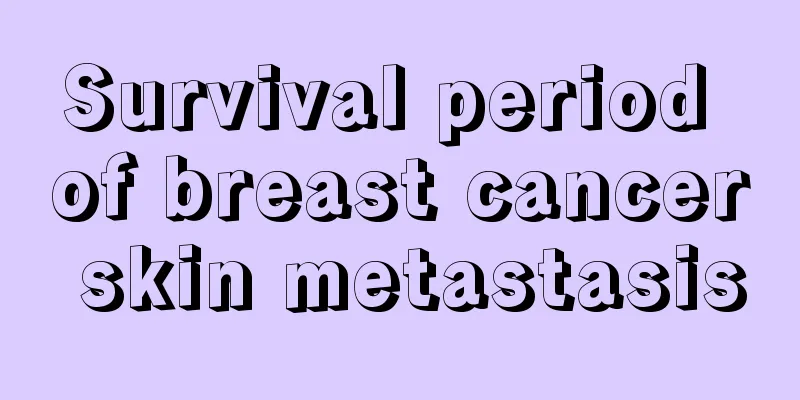What are the methods to prevent recurrence of nasopharyngeal carcinoma

|
The treatment of nasopharyngeal carcinoma is a long process, lasting several months or even years. Some patients may have some extreme behaviors. We should be good at observing the words and deeds of patients, take the initiative to care for them, and take preventive measures. So how to prevent nasopharyngeal carcinoma? Symptoms of nasopharyngeal carcinoma recurrence are hidden, so attention should be paid to details The five-year survival rate of nasopharyngeal carcinoma is about 50%. The main factors affecting the five-year survival rate are the recurrence and metastasis of the tumor. Studies have shown that the five-year cumulative recurrence rate of nasopharyngeal carcinoma after radiotherapy is 22%, and its metastasis rate is 25%. How to reduce the recurrence and metastasis rates of patients is the key to improving the survival rate of nasopharyngeal carcinoma patients. The symptoms of nasopharyngeal carcinoma recurrence are not obvious, and bloody discharge is often the most common symptom of nasopharyngeal carcinoma recurrence. There are many factors that cause nasopharyngeal carcinoma recurrence, including tumor biological characteristics, clinical staging and treatment technology, individual differences, etc. The time of recurrence is usually within 3 years after treatment, and the recurrence rate is highest within the first year after radiotherapy; patients with earlier recurrence are usually seen in some middle and late stage cases, while those with later recurrence are more common in some early stage cases; recurrent cases are prone to distant metastasis. Tinnitus is often the main manifestation of parapharyngeal recurrence of nasopharyngeal carcinoma. Headache is more common in paranasal sinus and/or intracranial recurrence. Cavernous sinus recurrence is often accompanied by upper cranial nerve damage. Is tinnitus a symptom of nasopharyngeal carcinoma recurrence? Clinically, patients suspected of being at risk of recurrence must undergo a pathological tissue biopsy to confirm the diagnosis, including a paranasal sinusoscopy pathological biopsy. Salvage surgery is performed on patients with recurrent nasopharyngeal carcinoma who have no invasion of the posterior parapharyngeal space or internal carotid artery, no extensive skull base bone destruction, and are in good general condition. Symptoms of nasopharyngeal carcinoma recurrence include double vision, numbness under the eyes, cheeks, lips, difficulty opening the mouth, pain when touching the scalp, etc. In severe cases, there is intracranial hemorrhage. If the MRI examination does not find it, it is not a recurrence at present. Nasopharyngeal carcinoma is generally considered cured after 5 years. However, nasopharyngeal carcinoma patients are also more likely to develop a second cancer, many of which are cancers in other parts of the body, such as lung cancer. The correct mentality is not to be overly nervous, but also not to take it lightly. Actively cooperate with the doctor for anti-inflammatory treatment. Regular follow-up and physical examinations are required. Pay attention to the three-step psychological intervention method First, psychological intervention combined with radiotherapy can often achieve better results. Data show that reasonable psychological intervention is of great significance to ensure that patients with this disease get enough sleep during radiotherapy, increase appetite and maintain a good mental state. Psychological intervention can improve the anxiety, fear and depression of nasopharyngeal carcinoma patients. Wu Yanping used music combined with radiotherapy to treat 32 cases of nasopharyngeal carcinoma. The results showed that the 9 factors of SCL-90 of patients who received music therapy were lower than before treatment. Secondly, social and family support plays an important role for patients. Patients are encouraged to take care of themselves as much as possible to dilute the "patient role". There are many comprehensive rehabilitation methods worth recommending, such as deep breathing, hot water bath, massage, etc., to self-regulate the psychological state. Patients should also learn some health knowledge. They can prepare light salt water to rinse their mouths 4 to 5 times a day; at the same time, they can rinse their mouths by alternating cheek puffing and sucking for 1 to 2 minutes to remove loose dental plaque. In order to prevent serious mucosal damage caused by radiotherapy, they should often do mouth opening exercises in their spare time during radiotherapy to maximize the exercise of the temporomandibular joint, 100 times each time, 3 times a day. Finally, we must know that the treatment of nasopharyngeal carcinoma is a long process, lasting several months or even years. Some patients may have some radical behaviors. We must be good at observing the words and deeds of patients, take the initiative to care for them, and take preventive measures. |
<<: How to prevent nasopharyngeal cancer
>>: Prevention and treatment of nasopharyngeal carcinoma
Recommend
What are the methods for diagnosing testicular cancer
Testicular cancer, as the name implies, occurs in...
How to get rid of cockroaches in the house
Everything is good in summer except that there ar...
What is the percentage of glioma cure rate
I believe everyone knows that glioma is a common ...
What is the main use of edible magnesium chloride?
Magnesium chloride is common in industry. Because...
The function of eye cream
Eye cream is one of the most common cosmetics. Th...
The harm of acrylamide to humans
Acrylamide is a polymer that is often used to pur...
A's Weight Loss Method
Nowadays, there are more and more obese people, s...
Aortic dissection surgery process and postoperative monitoring
Aortic dissection is a relatively difficult disea...
Common methods of cognitive therapy
Many people feel very insecure about themselves. ...
Fat people’s summer outfits
Summer is a special season. Many people know that...
Can nasopharyngeal carcinoma with lung metastasis be cured?
Can nasopharyngeal carcinoma with lung metastasis...
Is it good to apply mineral water on your face? What techniques do you need to master?
The face is very important for those who love bea...
Symptoms of progressive bulbar palsy
Progressive bulbar palsy is a type of motor neuro...
Are rove beetles poisonous?
There are many insects in our lives, some are poi...
Is it good to drink tea water in the morning?
It is best to drink tea after meals, as drinking ...









